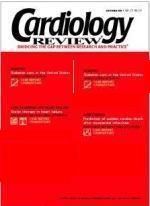Case report: A patient with multiple risk factors for atrial fibrillation
A 53-year-old man had been followed up for 2 years after an anterior myocardial infarction (MI) with left ventricular dysfunction (left ventricular ejection fraction, 30%). His medical history included one episode of paroxysmal atrial fibrillation 5 years earlier, smoking, hypercholesterolemia, hypertension, and obesity. He had a family history of early cardiovascular disease. He was taking enalapril, 10 mg twice daily; sustained-release metoprolol, 200 mg daily; coated aspirin, 325 mg daily; and atorvastatin, 20 mg daily.
Since his MI, the patient had been stable without angina. His New York Heart Association functional class was II/IV. He quit smoking, walked regularly three times a week, and tried unsuccessfully to reduce his weight. At the follow-up visit, he reported having no angina, orthopnea, paroxysmal nocturnal dyspnea, or palpitations. Results of the physical examination showed an obese man without signs of decompensated heart failure. His electrocardiogram showed sinus rhythm with known Q waves in the anterior leads. Surprisingly, despite his multiple risk factors, he had not
yet developed atrial fibrillation, perhaps because he has been on an angiotensin-converting enzyme inhibitor.
